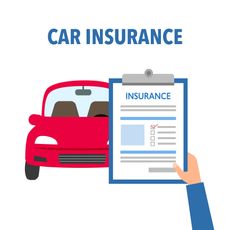Collision vs Comprehensive Car Insurance: Which Do You Need?
Here's what you need to know about collision vs. comprehensive car insurance.


Collision vs comprehensive car insurance: which do you need? While collision and comprehensive car insurance are optional in every state, they’re required by lenders if you are financing or leasing your vehicle. Despite these types of coverage not being mandatory if you own your vehicle, adding either type to your insurance policy can be beneficial in certain scenarios.
Here’s what you need to know about collision vs comprehensive car insurance and whether or not you need it.
Collision vs comprehensive car insurance
Collision insurance: If you are involved in a car accident with another vehicle, regardless of who is at fault, collision coverage will pay for any damages to your own vehicle. If you get into a single-car accident, collision coverage will cover damages to your car in that case as well. For example, if you hit a street sign or pole, collision insurance will cover those damages.

Sign up for Kiplinger’s Free E-Newsletters
Profit and prosper with the best of expert advice on investing, taxes, retirement, personal finance and more - straight to your e-mail.
Profit and prosper with the best of expert advice - straight to your e-mail.
However, collision coverage is usually expensive to add to your car insurance policy. Collision coverage costs an average of $814 per year, according to Forbes. While the price is high, it could end up saving you money in the long run. If you do get into an accident and damage your vehicle, you'll only have to pay your deductible.
Comprehensive insurance: Comprehensive insurance covers your vehicle up to its actual cash value for non-collision accidents. This includes damage from severe weather, like flood, hail or fire, vandalism, theft, falling objects and collision with an animal. Comprehensive coverage is generally cheaper than collision coverage, costing, on average, $367 a year, according to Forbes.
If you live in an area with high levels of crime where a break in or theft is likely to occur, live somewhere prone to flooding or live in a rural area where the odds of hitting a deer are quite high, you may need comprehensive insurance more than other drivers.
Below you can use our tool to get personalized rates from top carriers today.
Which do you need?
Roughly 79% of insured drivers purchase comprehensive coverage in addition to liability insurance, and 75% purchase collision coverage, according to the Insurance Information Institute (III) (which used 2020 NAIC data).
However, if you own your vehicle, you'll have the option to forgo comprehensive and collision coverage if you decide you don't need it. Here's what to consider.
— Are you financing or leasing your vehicle? If so, you'll be required by your lender or leasing company to have collision and/or comprehensive coverage included in your policy.
— Can you afford to repair any damages to your vehicle that may happen as a result of an accident? If your car gets stolen, can you afford to purchase a new vehicle? If not, adding comprehensive and/or collision coverage to your policy can provide financial protection if either of these events occur.
— How much is your vehicle worth? In some cases, adding collision or comprehensive coverage to your policy isn’t worth it. Collision and comprehensive insurance covers up to the actual cash value of your vehicle, minus the deductible. So if you have an old car, you’ll likely end up paying more money in premiums than the amount of money you’ll get back from the insurer. For this reason, dropping collision coverage on older vehicles can help you save on your auto insurance premium.
Related Content

To continue reading this article
please register for free
This is different from signing in to your print subscription
Why am I seeing this? Find out more here
Get Kiplinger Today newsletter — free
Profit and prosper with the best of Kiplinger's advice on investing, taxes, retirement, personal finance and much more. Delivered daily. Enter your email in the box and click Sign Me Up.

Erin pairs personal experience with research and is passionate about sharing personal finance advice with others. Previously, she was a freelancer focusing on the credit card side of finance, but has branched out since then to cover other aspects of personal finance. Erin is well-versed in traditional media with reporting, interviewing and research, as well as using graphic design and video and audio storytelling to share with her readers.
-
 Amazon Prime Day vs Walmart Deal Days: Which Is Better?
Amazon Prime Day vs Walmart Deal Days: Which Is Better?From household goods and clothing to electronics and toys, which retail giant is the clear winner? The answer may be both.
By Kathryn Pomroy Published
-
 Perpetual-Life Non-Traded REITs: Four Things Investors Should Know
Perpetual-Life Non-Traded REITs: Four Things Investors Should KnowCompanies with good track records oversee the largest perpetual-life non-traded REITs, but there are some structural concerns about the funds to be aware of.
By Matt Sharp Published
-
What Is Comprehensive Auto Insurance and What Does It Cover?
insurance This grab bag of coverages can protect you and your vehicle from theft, fire and forces of nature.
By Donna LeValley Last updated
-
Tips For Open Enrollment 2023
Open enrollment will soon be underway, and many employers are shielding workers from hefty increases in health insurance premiums. But it pays to review your options carefully.
By Kimberly Lankford Published
-
How Much Life Insurance Do You Need?
insurance Instead of relying on rules of thumb, you’re better off taking a systematic approach to figuring your life-insurance needs.
By Kimberly Lankford Published
-
What Is Liability Insurance and What Does It Cover?
insurance Liability insurance protects you if you injure someone else or damage their property with your car.
By Donna LeValley Last updated
-
Want to Feel Better About Life Insurance? Go Digital
Customer satisfaction with life insurance and annuity products picks up substantially when participants go digital, J.D. Power survey shows.
By Kathryn Pomroy Published
-
What Is Collision Insurance and What Does It Cover?
insurance Collision insurance is often optional, but there are many good reasons to include it in your policy.
By Donna LeValley Last updated
-
What is the 80% Rule in Homeowners Insurance?
The 80% rule in homeowners insurance says to receive full coverage, homeowners must have coverage costing at least 80% of their home’s total replacement cost value.
By Erin Bendig Last updated
-
Do You Really Need Home Insurance?
Homeowners insurance is required by most mortgage lenders, and is included in your mortgage payment.
By Seychelle Thomas Last updated







